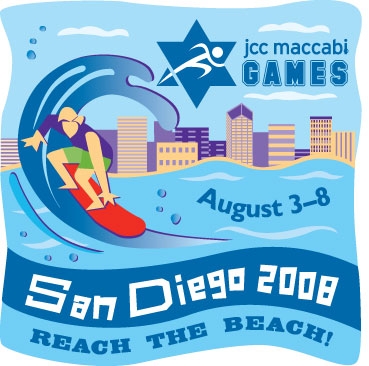San
Diego Jewish World
Saturday evening, August 4
Vol. 1, Number
96
|
Archives Event Tracker HOME Jewish Directory Jewish Grapevine Jews in the News News Sleuths Sports |
| PLEASE SUPPORT OUR ADVERTISERS; THEY ARE HELPING TO BRING San Diego Jewish World TO YOU: America's Vacation Center Bubbla Packaging Systems I'm There For You Baby radio show In the Know' radio show JCC Maccabi games Jewish American Chamber of Commerce Jewish Community Foundation Journey to the copper age Old Town Trolley Tours of San Diego Seacrest Village Retirement Communities |
After Five Hundred Years – A Daughter Returns
SAN DIEGO—The Golden Age of Judaism in Spain (Sepharad) was not completely golden. There were a number of cracks – even chasms – in the surface veneer, such as the very trying times under the Visigoths (600 C.E.) down to the horrific massacres of 1391 C.E. However, compared to other places in which the Jewish Diaspora lived, Spain especially under the Caliphate of Islam, had been a sanctuary in which the Jewish population (Sephardim) lived and thrived. But as the Christian armies from the north began to push the Moslems out of the peninsula, the landscape for the Jews changed slowly and then irrevocably. On August 3, 2007, it was five hundred and fifteen years since the finality of the Edict of Expulsion was enforced.
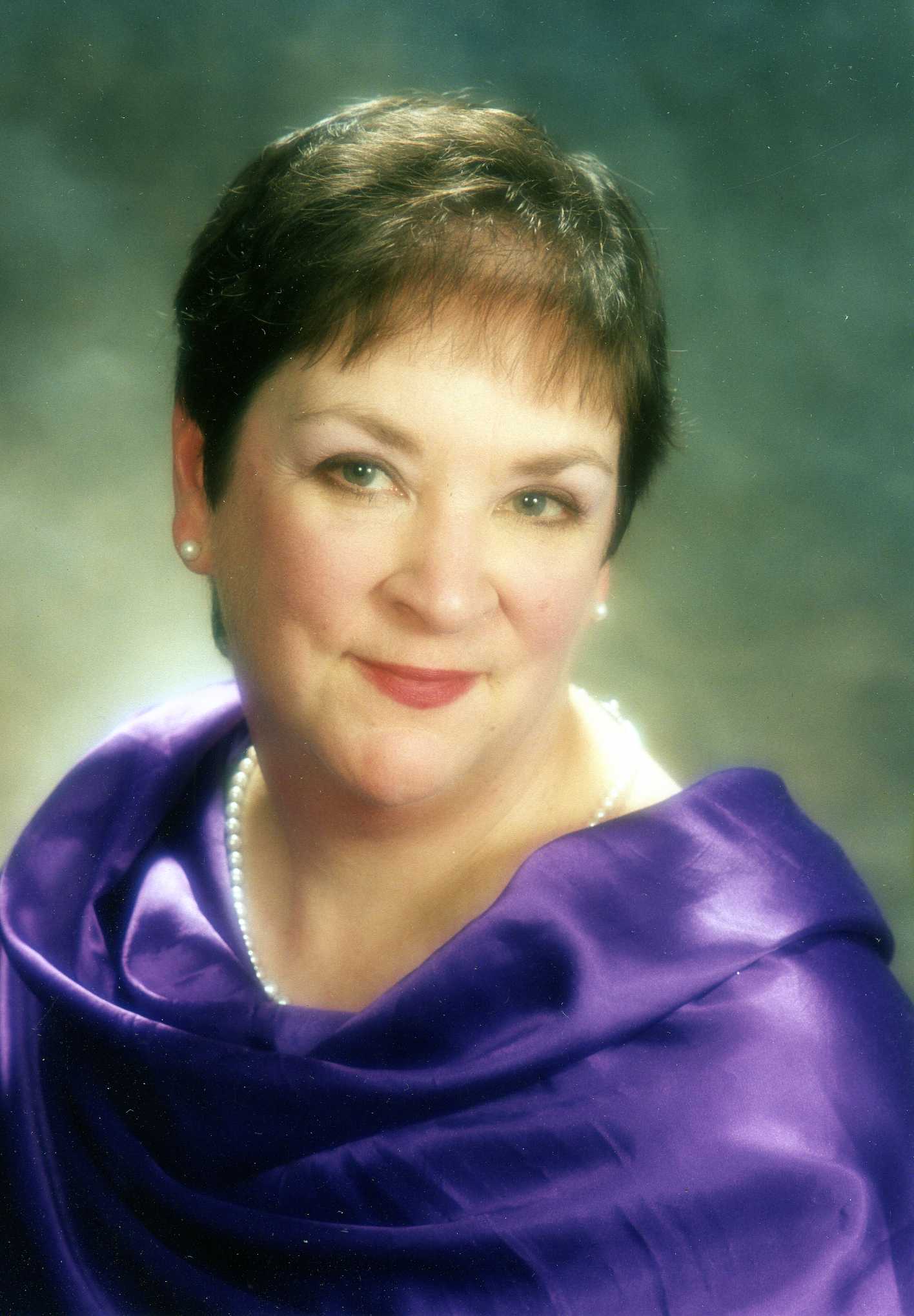 Mary Loera |
In 1492, the year of the
Expulsion, thousands of Jews elected to truly convert (the conversos) to
Catholicism rather than leave the land they had inhabited since at least
600 B.C.E. Some were unable to leave because of health, age, poverty or
logistics: the roads and ships were clogged with refugees. Many chose
to convert while continuing to practice Judaism (crypto-Jews) secretly
while others fled to distant lands: Holland, the Ottoman Empire, North
Africa (the Maghreb) India, Asia and the Americas. Many crypto-Jews
came to the Americas later in a vain attempt to flee from the
Inquisition.
Next to the American Revolution
and Constitution-writing period, the Jewish experience in Spain
has always fascinated me. On a spring afternoon in 2006, I put
down the book I was reading concerning |
|
San Diego Jewish World
United
States of America |
Spain (the Sephardic migration to Salonika and Cochin) and went to Temple Emanu-El, San Diego, to the kitchen to help bake Hamentaschen for Purim. And there, to my surprise and subsequent enjoyment, I found an echo of that Sephardic history about which I had been reading for so many years: a living descendant of a family which had to face that crisis and had to make that choice. As we rolled dough side by side, Mary Loera told me about her desire to embrace the faith that she believed her ancestors had worshipped. She was at the beginning of her journey of seeking and learning and allowed me the rare privilege, not only of her friendship, but to accompany her – as much as possible – on this road. Now she is in the midst of her journey and has kindly consented to share it with all of us. |
|
Q. You and I first met in 2006 in the kitchen at Temple Emanu-El over a hot stove baking Hamentaschen….and we haven’t stopped talking (or eating) since. You told me you were seeking to be a “Jew by choice” which captured my attention and I asked you how come you wanted to do this. Would you tell me about this again?
Mary: I remember when I was five years old my (paternal) grandmother told me that our family had left Spain when the Jews did. As a five year old I didn’t understand it but it remained with me – I always remembered it. Then in 2005 I was at a Christmas pageant which was narrated by a Jewish man and he said that all the shepherds were Jewish, that Mary and Joseph were Jewish and so was Jesus. Something snapped in my mind and it really made me stop and think. When I mentioned it to a Jewish friend, she suggested that I look into taking a class “A Taste of Judaism.” So, I did that. I took “Taste of Judaism I” and then “Taste of Judaism II.” Then I started attending Sabbath services on Friday night, but I had to wait almost a year until the “Introduction to Judaism” classes started again, so I could sign up.
Q. When did you first have an inkling about your history?
Mary: Well, there was that comment my grandmother made that our family left Spain when the Jews did. I’ve also discovered that in 1759 my father’s family was in Ecuador, and then went to Panama. They are still in Panama. My mother’s side are British descendants – one was a vice governor under the British king. I think I always somehow knew of a Jewish connection – I don’t know how. It was like I had an internal connection and as time went on this accumulated. Like signs along a road.
(Jump to continuation)
 Letter from Jerusalem By Ira Sharkansky |
The Middle East is not the
American Midwest
JERUSALEM—Several concepts that appear in discussions of the Middle
East have more than academic importance. This is not the stuff of a
seminar, but is central to how people think and act with respect to
Israel, and what they intend for Iraq and Afghanistan, and all those
other places affected by Islam and Arab cultures.
One of the ideas is "Jewish democracy."
It is common for Israel's enemies and antagonists to assert that "Jewish democracy" is a contradiction in terms. Israel cannot be a democracy, is how the mantra plays out, so long as Jews assure themselves of all the key slots in the society.
Israel manifests two elements of Jewish tradition that are among the essential elements of democracy: a concern for justice, and an openness to criticism. Biblical Israel and Judah were not democracies, and Jewish communities over the ages until modern Israel were not democratic. Nonetheless, justice and criticism are embedded in the Hebrew Bible, the Talmud, and much else that rabbis and others have been compiling for at least 2,500 years. In the Bible, they are most prominent in the books of Amos, Hosea, Isaiah, Jeremiah, Job, and Ecclesiastes.
Modern Israel has all the features of a democracy. Citizens (Jews and non-Jews) can vote in open and competitive national elections, and non-citizen residents can vote for local councils and mayors. Voting turnout is generally at European levels, higher than in the United States. There is a functioning parliament and an independent judiciary. There are numerous forums for lively public discussion, as well as competitive and critical media. The State Comptroller (GAO equivalent) is empowered to criticize government activities not only according to the conventional criteria of legality, economy, and efficiency, but also according to the criteria of moral integrity.
If Arabs in Israel feel themselves disadvantaged, they have only themselves to thank. Instead of working through the major parties and trading their votes for benefits given to their communities, they vote mostly for anti-government parties. They vote themselves out of the forums that pass out the goodies, and spend their time demanding that Israel become a state like all those less than ideal places in the region. The Arabs of Jerusalem go one step further. They do not vote at all, and thereby deprive themselves of perhaps one-third of the city council plus crucial leverage over the mayor. Then they wonder why their neighborhoods get less than Jewish neighborhoods.
The idea of Arab democracy is central to the efforts of the White House to manage the Israel-Arab conflict, as well as Iraq and Afghanistan. A democratic Palestine living in peace alongside Israel is a great ideal. Democracy beginning in Iraq and Afghanistan, and spreading elsewhere in the Middle East is no less appealing.
But this is the Middle East, not Middle America. Reform is not a matter of backing the right leader, organizing elections, and expecting progress. Arab cultures and Islam have admirable qualities. But they also have other traits, which produce the suppression of individual liberty, and warfare among extended families, clans, tribes, and Muslim sects, as well as between Muslims and the rest of us. This is the stuff that Judaism abandoned in ancient times, and that Christianity left behind as it worked itself out of the Middle Ages, through chronic wars, the Holocaust, and into the European Union.
The wide range of attitudes and behaviors of Israeli Jews, and arguments about religion, politics, and the Palestinians can be unpleasant in the extreme, but they do manifest the working out of tensions in ways that are democratic.
George W. Bush found himself the president of the a country with a great deal of power and the responsibilities that came with it, plus the attack of 9-11 and all that it represented. International relations is not always a place for subtle nudges. There are few if any indications of success for American actions in Iraq or Afghanistan. However, a critic must answer the question, "How would you have done it?" as well as the question, "What to do now?" I have not noticed any great responses to those questions from those who want the president's job.
And what about Palestine? Unfortunately, it is too much like the other societies in the region. Inner tensions have just now boiled over into a civil war. It is a long way from what it takes to live at peace alongside anyone. We can hope for some magic coming out of the White House or elsewhere that will realize the aspiration of the Road Map ("A Performance-Based Roadmap to a Permanent Two-State Solution to the Israeli-Palestinian Conflict.") Israel is dependent on the United States and Europe, and must never say, "Never." As this academic examines the words and the deeds, however, it seems that the White House is in Fantasy Land. Its road map goes nowhere.
.
ZOA says it is 'shocked' by Tibi editorial in Al-Quds
NEW YORK (Press Release)—This
week, the Israeli Arab Member of Knesset (MK) Ahmed Tibi (United
Arab List/Ram Ta'al) attacked the State of Israel in a fiery
editorial published in the Arabic-language newspaper
Al-Quds. Tibi wrote in
the editorial that "Palestine belongs to its Arab residents, not to
the Jewish occupiers."
This absolute rejection of Israel's existence and Israel's having
any right to having statehood and any land in the Middle East within
any borders mirrors his remarks seven months ago in Ramallah where
he told a Palestinian audience that they should fight the
"occupation" until they take over all of the land. He made the
remarks in a huge rally celebrating the Fatah movement, headed by
Palestinian Authority (PA) Chairman Mahmoud Abbas (Israel
National News, August 1, 2007).
The
Fatah Constitution labels
Zionism racism (Article 7) and calls for the destruction of Israel
(Article 12) and the use of terrorism as an indispensable part of
the struggle to achieve that goal (Article 19).
Tibi's open call to violence against the country in whose parliament he sits and rejection of Israel as a Jewish state is but one of numerous words and deeds by he and other Israeli Arab MKs that demonstrate their rejection of Israel and embrace of the Palestinian position. This was particularly evident during and after last year's Lebanon war.
Disloyal statements by Arab MKs following the 2006 Lebanon war:
-
Azmi Bishara (Balad): Praised Syria for its "struggle to liberate occupied Arab land, its resistance against occupation and its defense of the legitimacy of such resistance" (Jerusalem Post, September 12, 2006). He has stated that "We are Syria's ally" and supported its efforts to free "occupied Arab land" (Haaretz , September 10, 2006), condemned "Israel's barbaric onslaughts" against Lebanon and urged Nasrallah to "continue his fight" (Jerusalem Post, September 12, 2006). Perhaps most serious of all, he warned Syria of likely "preemptive Israeli strikes" (Jerusalem Post, September 12, 2006), something of which he might well have knowledge as a result of his presence in the Knesset.
-
Jamal Zahalka (Balad): "For us Syria is no enemy ... [we support] solidarity with Syria, especially after Israel's savage aggression against Lebanon" (Jerusalem Post, September 12, 2006). He has also said that "We don't see Syria as an enemy state" (Haaretz, September 10, 2006). Lastly, Wasal Taha recently revealed he had recommended that organizations hostile to Israel "concentrate their efforts on attacking and abducting Israeli soldiers" (Jerusalem Post, September 12, 2006).
-
Wasal Taha (Balad): recently revealed he had recommended that organizations hostile to Israel "concentrate their efforts on attacking and abducting Israeli soldiers" (Jerusalem Post, September 12, 2006).
Additionally, Israeli Arab MKs, including Tibi, Bishara, Zahalka and Taha, have undertaken trips to countries that are in a state of war with Israel, like Syria, and declared their solidarity with Israel's enemies. This has even occurred since a law was enacted in 2001 prohibiting such visit to enemy states and amendments to it to tighten its operation. However, no attempt has even been made to enforce the law since that date.
ZOA National President Morton A. Klein said, "It is simply intolerable that these MKs sit in the Knesset while recommending various acts of aggression to Israel's enemies and consorting with terrorists and the leaders of Arabs regimes that harbor them. Imagine if a US congressman paid an unauthorized visit to North Korea, declared himself to be on North Korea's side and recommended action North Korea should take to inflict harm on U.S. military personnel or other actions hostile to the United States. Such a congressman would be charged with treason or other serious crimes. The ZOA has long supported the proposal of Knesset Member Zevulun Orlev who proposed last year the enactment of a law that would ban MKs from the Knesset who support or identify with a terror organization.
"The Jerusalem Post has rightly editorialized, 'A country's legal code is the glue which keeps its social fabric from fraying and tearing. When that code is contravened, the country's resolve to uphold its sovereignty is tested. If it fails to implement and enforce its laws, it loses authority. Laws cannot apply only to one segment of the population. Such a situation broadcasts not broadmindedness and magnanimity but vacillation and weakness. It invites further breaches' ( Jerusalem Post, September 12, 2006).
"It is necessary to put an end to the dangerous situation that Israel Arab MKs sit in the Knesset at taxpayer expense while rallying behind genocidal terrorist groups that murder Israeli citizens and work to end Israel's existence as a Jewish state. For this reason, the 2001 law is no longer enough, even if it is rigorously enforced. Rigorous enforcement of this law will not prevent Azmi Bishara from praising Syria's support for Hizballah's aggression against Israel; or Jamal Zahalka deciding for himself that Syria is not an enemy; or Wasal Taha advising Palestinians to kidnap Israeli soldiers. And it will not stop Ahmed Tibi from calling upon Palestinians to fight Israel or declaring that the Jewish people have no right to their sovereign state. In this context, Zevulun Orlev's proposal for a law banning something which would be illegal in most democracies – identifying with foreign powers at war with one's country – should be seriously discussed and drafted. Israel is engaged in a long-term battle for its existence and simply cannot tolerate Israeli Arab MKs willing and able support enemy regimes and terrorist groups, whether they pay them visits or not."
|
|
Adventures in Cruising—Royal
Caribbean's Monarch of the Seas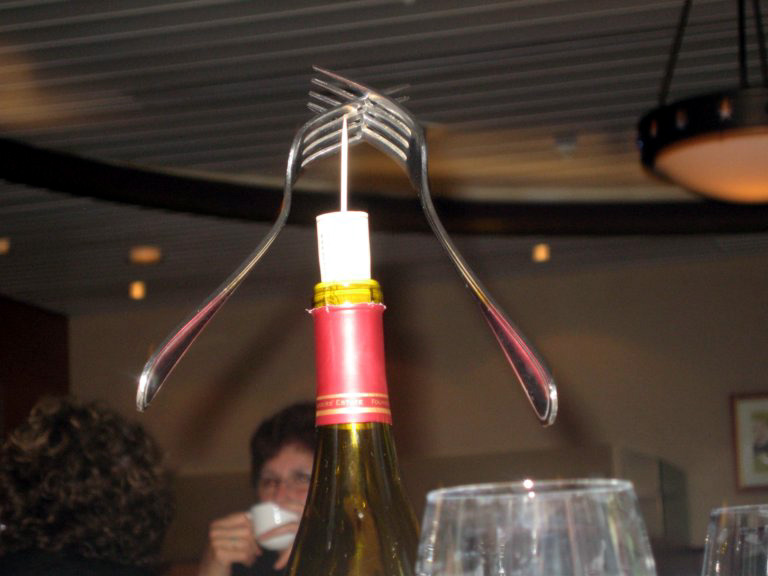 Fork Trick—Dining room waiter's creation used a tooth pick to balance forks on a wine bottle Thanks to the Ford family of Agoura Hills, California, for sharing their photos of their family reunion weekend cruise |
|
____________________ 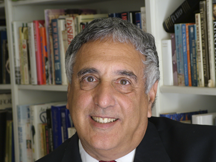 The
Jewish
Citizen The
Jewish
Citizen
by Donald H. Harrison |
SAN DIEGO—First, my take on the Bonds controversy. No, I am not talking about Israel Bonds, I'm talking about Barry Bonds. I've been reading how Bud Selig, the commissioner of baseball, agonized over whether he should attend tonight's Giants-Padres game at which Bonds tied Henry Aaron's lifetime record of 755 major league homeruns. Further, I read the comments by sportscaster Ted Leitner wondering what he would say while broadcasting news of the homer, given all the controversy over whether Bonds' record will be "legitimate." There have been allegations that Bonds has been using steroids, which have enhanced his batting performance. These is no proof that this occurred as there has been no trial, no presentation of evidence, just a lot of hearsay. Accordingly, Selig wisely decided that he should follow the prescription that a "man is innocent until proven guilty" and treat Bonds' pursuit of the record exactly as he would if no such allegations had been made. I think that was the right approach. The presumption of innocence is not just a saying from Civics 101, it is a foundational belief of American democracy. There is no better place than the American Pastime —baseball—to demonstrate how we adhere to this core belief. So what happens after all the fireworks, and celebratory speeches, if the allegations against Bonds prove true? At that point, organized baseball can make a big production about "putting an asterisk" on Bond's statistics, but not before. I, for one, was glad when Bonds knocked one out of the park during the second inning of the second game with San Diego—but I was even happier when Khalil Greene hit a bases loaded single in the 12th inning to win it for the Padres, 3-2. I am a San Diegan, after all.
JEWS AND MUSLIMS—Abe
Goldberg passed on to us a power point presentation he
received comparing the size of Israel to the modern Muslim
world. Here is
a link. While appreciating the graphic presentation, I
take issue with the "us vs. them" premise upon which the
presentation is built. It is wrong to treat the "Muslim world"
as a single, undifferentiated unit, making no distinction, say,
between Turkey, Jordan and Egypt (which have diplomatic
relations with Israel) and Iran and Syria (which continue to
declare themselves enemies of the 'Zionist entity.') We in the
Jewish world must be willing to learn about, understand and
differentiate Muslims one from another, and always try to
cultivate and recognize friends. Lumping everyone together
as "enemies" or even "adversaries" neither does them or us any
good.
DEAD SEA SCROLLS—Charles Gadda, who has been a critic of the
Dead Sea Scrolls exhibition at the San Diego Natural History
Museum since before its opening in June, has
an article on
the Now Public website in which he suggests that Christian
fundamentalists may have had an inordinate influence on how the
scrolls have been presented. He is critical of Risa
Levitt Kohn, the Jewish curator, particularly for her
refusal to include in the lecture series Prof. Norman Golb
who disputes the theory that the Qumram community was
responsible for the production of the scrolls found in caves
near the Dead Sea. Golb and others believe that the
scrolls were simply taken to the caves from Jerusalem for
safekeeping during the times of revolt against the Romans.
One can tell from Gadda's article how passionate he is on this
subject, but I have difficulty understanding the stakes.
If the scrolls were hidden by Jerusalemites, or produced by
Essenes, what difference does it make to us two millennia later?
Would proof of either theory change our modern world even an
iota?
HIGH HOLIDAYS—Young Israel of San Diego is a small
Orthodox congregation led by Rabbi Chaim Hollander, who
oversees the Judaic Studies curriculum at the Soille San Diego
Hebrew Day School. Like his rabbinical colleagues around
the world, he is getting ready for the High Holidays. By
following the links from
our calendar,
you can find his schedule of services—as well as those for other
rabbis who are sending in such information to us—from Selichot,
September 8, through Simchat Torah, October 5. Rosh
Hashanah, Yom Kippur and Sukkot, of course, are between those
dates. Some rabbis might be daunted by the prospect of so
many holidays coming one after the other, but Hollander is even
adding to his schedule by offering four holiday-related classes
at his shul located in a strip shopping center at 7291 Navajo
Road, diagonally across the street from the starting point of
the Cowles Mountain climb. The half-hour and hour-long
classes by date, time, and topic are: Monday, Sept. 3, 7:15
p.m.: "Is it Rosh Hashana Already?"; Saturday, September 8: 9:30
p.m. "Selichot—A Mini Yom Kippur"; Monday, Sept. 10, 7:15 p.m.
"Why Do We Need Rosh Hashana?" and Monday, September 17, 7:15
p.m. "Making Your Yom Kippur More Meaningful."
JEWISH STORY EVERYWHERE—The other day, I was taking a walk with
Okoronkwo Umeham around Lake Murray, when we felt our step
quickened by the persistent beat of a drum somewhere off in the
distance. Eventually we spotted a shirtless fellow sitting on a
picnic table tapping out the beat on the kind of drum you might
see used by musicians backing up belly dancers. Okoronkwo,
a native of Arochukwu, Nigeria, and I were both drawn to the
drummer; Okoronkwo because he, himself, did quite a bit of
drumming back in Nigeria; and me because I was hoping to hear
what the two might say or do together about their music.
We chatted for a while, and it turned out that the mysterious
drummer was an Israeli, Natan Dubrovsky, who performs
around town. The amiable Dubrovsky started to hand his
beautifully crafted drum to Okonronkwo to play but then spotted
the gold wedding band on his finger (symbolizing his marriage to
Gail Umeham). Could he please take the ring off, so the
surface of the drum doesn't get scratched? he asked Okoronkwo.
Unfortunately, that would have required some very slippery soap,
which obviously was not handy. So Okoronkwo didn't play
the Israeli's drum, and I missed out on a short concert of
percussionists. But I am hopeful the Nigerian and the
Israeli will meet up again, and that I'll be in earshot.
NANCY'S CRUISE ADS—Watching the changing daily photograph in the
advertisement above for my wife Nancy Harrison's travel
business with America's Vacation Center makes me want to start
breathing sea air again! Cruising is such a delight to the
senses in more ways than you might ordinarily think. The
trick photographed by Nancy's clients, Caren and Craig
Ford, of balancing forks on top of a wine bottle is
just one of many ways that the crews on cruise ships try to
expose passengers to interesting ways of doing things.
Watermelons, confections and ice are often carved into unusual
shapes; towels are folded in unusual ways in your cabin; art is
often auctioned aboard ships. There are deck games, lectures,
contests—the variety is seemingly endless. On most ships,
there either are scheduled Friday night Shabbat services, or
with a request to the cruise staff, a Shabbat service can be
arranged. Nancy and I love to go to such services not only for
their spiritual value but also to meet fellow Jews from many
different parts of the world. Sometimes these contacts
lead to pleasant companionship on shore excursions; on other
occasions, they can even lead to long-lasting friendships.
Nancy and I have taken about three dozen cruises to various
parts of the world; it's the kind of vacation that both of us
heartily recommend.
________________________
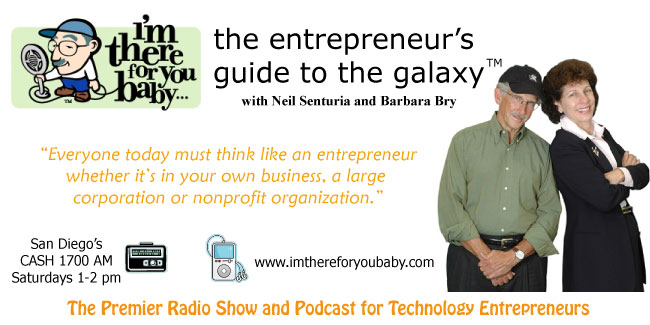
Click the ad above to go to the "I'm there for you baby" website

California, Arizona & Nevada
sales positions
|

{Click the above ad for more
information}

News from the Israel Baseball League |
Burgers and prayers: Scenes at IBL All-Star game
By Yoni Peres
PETAH TIKVA, Israel—"Baseball? In Israel ???" responded my friend Mike Shapow from Los Angeles, when I invited him to watch the recent IBL All-Star game at Yarkon Field. Driving through the "Baptist Village" located outside of Petah Tikvah, we ended up at the gate of a beautiful field, surrounded by trees.
The moment we entered through the gate, the scene looked like "Little America" land. Booths selling baseball gear and souvenirs, "Burgers Bar" selling burgers, hotdogs, snacks and refreshment, with a "real" perpendicular line of customers (unlike the horizontal chaotic typical Israeli line…) and a stand full of American or ex-American fans. Even the announcer sounded professional American: Zach Harrison did some sports broadcasting back in the States.
The game started after the singing of "Hatikvah." It was exciting to watch all the fans, players and staff standing for the Israeli (not the American ) anthem.
We sat in the stands (no pushing, no arguing…), cooling off with cold popsicles in the 95 degrees and 70 percent humidity of Tel Aviv weather.
Larry Baras, the founder, walked around with a big smile of satisfaction on his face. I admire him for his great achievements within such a short period of time.
In the row in front of us, an 11-year-old kid, was discussing baseball statistics, going all the way back to 1906. My God, he was a living baseball encyclopedia. His brother, next to him, was struggling with a huge four-layer jumbo burger.
About half time into the game, the announcer let us know that "Mincha prayer will be held behind the burger bar." There was no problem to get a minyan – about 20 people stood there – fans, staff and security officers, facing Jerusalem and praying.
T
his was a 9 inning, instead of the usual 7 inning game of the IBL.The score : Dixie 6 , Yankees 5. Oops, sorry – South 6, North 5.
|
|
|
|
|
|
ALL-STAR SCENES—Top: Fans, coaches, security guards stopped to daven
mincha during Israel Baseball League's first All Star Game.
Middle: super-sized burger is among the American-style food
offerings at IBL
games. Bottom: Enjoying the game, from left, are
IBL founder Larry
Baras, Noach Braun and Norman Leventhal, both of the Israel Guide
Dog Center for the Blind, veterinarian Yoni Peres, and Mike Shapow.
{Click the above ad for more information}

{Marc Kligman, who combines being
a sports agent with his life as an observant Jew, invites you to listen.
Click on the ad above for more information}
|
Story continuations |
Jew by choice...
(Continued from above)
Q. Almost like a DNA memory?
Mary: Yes! Very much like that.
Q. What was your reaction?
Mary: There was no real reaction…it was like always there. I was raised a Presbyterian and went to Sunday school. In high school I took a comparative religion class. It was taught by a Jewish man and he was my first contact with a Jewish person. I lived in a very small town, Glen Ellyn, Illinois – there were no Jews there.
Then in high school I had to write a term paper and it was due in December. When I went to write it on my calendar – it said: “Hanukah.” I didn’t know what that was and when I found out it was a Jewish holiday I wrote to some Jewish organizations and asked them. They wrote back and told me to talk to my rabbi –but of course I didn’t have a rabbi. So I wrote back and told them that there were no Jews in my small town and finally they sent me some pamphlets with information and that’s how I wrote my term paper about Hanukah and turned it in on Hanukah.
And when I was teaching elementary school in San Diego, I found a lesson plan that included all the religious holidays that are celebrated in December and I included Hanukah.
Q. About your family’s history – does the rest of your family agree with your view of what happened?
Mary: I talked to my cousin in Panama and he is unaware of any Jewish connection. I am alone in coming to this conclusion. My grandmother was friends with another family and they are Jewish and my uncle (by marriage) is from this Jewish family. The families were friends.
Q. How does your family feel about your goal?
Mary: They think it’s interesting – my niece is especially interested. My sister and brother don’t seem to care. My husband is very supportive – not interested in doing this himself – but very supportive. No one is upset – it has no impact on their lives. My parents are gone and I have no children. Some friends thought it was strange – but most don’t seem to be concerned. I even have some friends who said that if they weren’t Catholic they would be Jewish.
I also want to say I think I had been looking for more structure and a stronger moral basis.
Q. Christianity has a moral base…..
Mary: Christianity’s moral stance is less emphasized at services. Judaism seems more family and community based. I think Judaism seems to have a higher moral standard.
Q. Is your family religious?
Mary: No.
Q. How has this affected you thus far? What changes have you made in your life – if any?
Mary: I’m more patient – less judgmental. I have an inner peace I didn’t have before. It has filled in a niche – filled out the missing piece of the pie – it is the missing piece.
Q. What impressions, if any, did you have about the Jewish community before you considered doing this?
Mary: I was surprised that a Jewish girl I knew in college dated Catholics, but when it came time to marry she would only consider a Jewish boy. I thought that was interesting. I really had no previous negative feelings about Jews.
Q. What were your first impressions about being part of the Jewish community?
Mary: I felt very welcomed – everyone was very nice to me – very encouraging. There were no bad experiences. I just wish I had done this sooner in my life, but then maybe I wasn’t ready. One of the things that surprised me – the only negative – was several Jews told me that belonging to a synagogue was very expensive. They really emphasized that to me. But I notice that these people have money for other things – like going on trips, or to the casino or eating out. So, it’s a matter of priorities.
Q. What feelings do you get about being accepted by the Jewish community you’ve already been in contact with?
Mary: I like them – like the people – no bad experiences.
Q. Are there any regrets, hesitations? Being a Jew could put you at risk….knowing the history – are you ready for that? If there is ever a round-up – you will be part of it.
Mary: I have no hesitation about joining – being a part of Jewish history. I already feel – I am a part of it. I am part of Am Yisrael. I have no fear of prejudice. I feel this is a good way for me and I like the way it makes me feel. I’m not afraid.
Q. Have you selected a Hebrew name yet?
Mary: Eliora – Eleanor. The Rabbi passed around a “book of names” and I chose that name.
Q. You’ve completed your series of classes “Introduction to Judaism” what did you think about it? What impressed you or surprised you?
Mary: It was wonderful, I loved it. But I was amazed and disappointed that people would quit in the middle. That was depressing.
Q. Maybe it’s meant to weed out those who aren’t really interested?
Mary: That’s true – maybe. I was so impressed with the wealth of information of Rabbi (Martin) Lawson. There wasn’t any question he couldn’t answer. All my questions were answered. A couple of the books on the history I had to read were a bit dry. It’s going to take me a long time to get the history straight in my mind. I really need to take this slowly and get into it.
Q. You told me you had an interview with Rabbi Lawson – without intruding on the privacy of that interview - can you give me a general impression of it?
Mary: He’s a very good listener, but keeps the interview on track. He gave me a list of questions to answer and told me I need to do this in less than seven years (laughs). It was a positive experience. I need to get my assignments done; there are more questions I have to answer and more essays, then the Mikveh, the Beit Din and then the ceremony. I also kept a journal which I turned in to him.
Q. Do you have any questions still unanswered
Mary: No – it’s very clear cut. Most of my questions were answered in class. I really really like the fact that we talk directly to G-D. As a child I was always afraid of punishment, the fire and brimstone. Judaism doesn’t have that. G-D is forgiving. I really like talking directly to Him.
Q. What do you have to do besides the “Introduction to Judaism” class you’ve just finished?
Mary: I have a final and then essays and questions to answer. The Mikvah, the Beit Din and then the ceremony. For instance I have to write how I identify with the Holocaust. I told Rabbi Lawson that I identify more with what happened to the Jews in Spain because that is my history
Q. If you are right about your ancestors being Conversos, or they made a decision to outwardly practice Catholicism rather than to leave Spain with other practicing Jews what do you think you would have done in the same circumstances?
Mary: If I were alone I would have left. But if I had a family I would have to consider what was best for the entire family. I would have to think about them. I feel so – terrible – what happened to them. (eyes welled up) It was a terrible choice to have to make. They lived there such a long time.
Q. Have I left anything out? Anything else you would like to say?
Mary: I feel like I am coming home – like I’m being moved by an outside Power. Way back in 1984, I once told someone I had a Jewish soul – I don’t know why I said that – where it came from. I didn’t even know what it meant. I got married under a gazebo – like a Chuppah.
My Mezuzah is up at my home. I attended two Seders at Passover. I’ve changed my eating habits – no more bacon – only turkey bacon. My husband, who is an awesome cook, made us BLT’s today with turkey bacon.
I’m know I’m going to accomplish this – but I’m not putting pressure on myself. One thing at a time. But I wish I had done it long ago, though other good things wouldn’t have happened. So, it’s right for me now.
* *
Watching as Mary has widened her knowledge and deepened her commitment to Judaism has impacted my life more than I thought possible. It has made me attempt to widen my own range of understanding and re-examine my own degree of commitment. The proud and ancient heritage that is mine was acquired all too easily at birth. What had always been a part of me is now much more intrinsically me. For that I am grateful. As Mary continues her quest and then reaches her goal, I hope to be at her side and to share that experience with the readership of San Diego Jewish World. Hopefully, it will be as meaningful to you as it has been for me.
(Return to top)
 ZOA
says it is 'shocked' by Tibi editorial in Al-Quds
ZOA
says it is 'shocked' by Tibi editorial in Al-Quds Bonds,
Muslims and Scrolls—An editor's views
Bonds,
Muslims and Scrolls—An editor's views
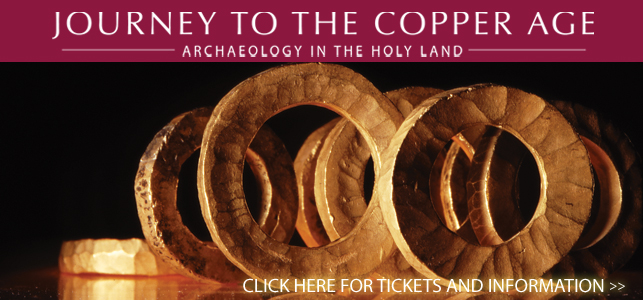


 The
foremost environmentally friendly packaging company, Bubbla,
seeks sales personnel throughout the three-state area to
demonstrate and sell its packaging systems. We offer sales
assistance, payment for pre-qualified customer demonstrations
and a high commission structure for independent representatives.
To find out more, email us at
The
foremost environmentally friendly packaging company, Bubbla,
seeks sales personnel throughout the three-state area to
demonstrate and sell its packaging systems. We offer sales
assistance, payment for pre-qualified customer demonstrations
and a high commission structure for independent representatives.
To find out more, email us at
